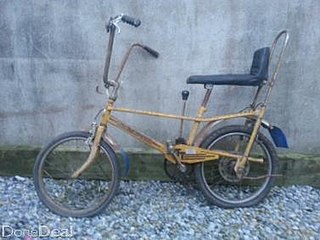
A model car, or toy car, is a miniature representation of an automobile. Other miniature motor vehicles, such as trucks, buses, or even ATVs, etc. are often included in this general category. Because many miniature vehicles were originally aimed at children as playthings, there is no precise difference between a model car and a toy car, yet the word 'model' implies either assembly required or the accurate rendering of an actual vehicle at smaller scale. The kit building hobby became popular through the 1950s, while the collecting of miniatures by adults started to gain momentum around 1970. Precision-detailed miniatures made specifically for adults are a significant part of the market since the mid-1980s.

Matchbox is a toy brand which was introduced by Lesney Products in 1953, and is now owned by Mattel, Inc, which purchased the brand in 1997. The brand was given its name because the original die-cast "Matchbox" toys were sold in boxes similar to those in which matches were sold. The brand grew to encompass a broad range of toys, including larger scale die-cast models, plastic model kits, slot car racing, and action figures.
Dinky Toys was the brand name for a range of die-cast zamak zinc alloy scale model vehicles, traffic lights, and road signs produced by British toy company Meccano Ltd. They were made in England from 1934 to 1979, at a factory in Binns Road in Liverpool.
Corgi Toys (trademark) is the brand name of a range of die-cast toy vehicles created by Mettoy and currently owned by Hornby, after it acquired the Corgi Classics Limited Company in 2008.
Jouef is a French brand and former manufacturing company specialized in scale model railroads. The brand name is currently owned by Hornby.

A die-cast toy is a toy or a collectible model produced by using the die-casting method of putting molten lead, zinc alloy or plastic in a mold to produce a particular shape. Such toys are made of metal, with plastic, rubber, glass, or other machined metal parts. Wholly plastic toys are made by a similar process of injection molding, but the two methods are distinct because of the properties of the materials.

Lines Bros Ltd was a British toy manufacturer of the 20th century, operating under the Tri-ang Toys brand name.
Lone Star Products Ltd. was the brand name used by the British company Die Cast Machine Tools Ltd (DCMT) for its toy products. DCMT was based in Welham Green, Hertfordshire, north of London.
Spot-On models was a brand name for a line of diecast toy cars made by Tri-ang from 1959 through about 1967. They were manufactured in 1:42 scale in Belfast, Northern Ireland, of the United Kingdom. Competition for Spot-On in the British Isles were Corgi Toys and Dinky Toys. The line was particularly British and rarely produced marques from other countries.
Husky was a brand name for a line of business die-cast toy scale model vehicles manufactured by defunct company Mettoy Playcraft Ltd. of Swansea, Wales, which also made the larger Corgi Toys. Husky Models was re-branded "Corgi Junior" in 1970, and a further range called "Corgi Rockets" was developed to race on track sets.

Playart was a toy company owned by Hong Kong industrialist Duncan Tong (唐鼎康) that specialized in die-cas toy cars, similar in size and style to Hot Wheels, Matchbox or Tomica. Cars were well done, but were often diecast seconds from other companies like Yatming or Tomica. Cars were made from 1965 to 1983 at the factory in San Po Kong, Kowloon, Hong Kong. Plastic cars and trucks of 1:43, and 1:24 scale were also made, while trains and other theme toys also appeared.
1:43 scale is a popular size of die-cast model cars in Europe, Asia and the US. It has its origins in the British / European O scale for model trains and the rise of certain accessories made for that scale which since have become popular in their own right. Models in this scale are 10–13 cm length.

Lesney Products & Co. Ltd. was a British manufacturing company responsible for the conception, manufacture, and distribution of die-cast toys under the "Matchbox" name. The company existed from 1947 until 1982.

Meccanica Bessana Toys, was an Italian toy manufacturer that produced die-cast scale model cars during the 1960s and 1970s.
Lledo was a British manufacturing company founded in 1982 by Matchbox co-founder Jack Odell, and Burt Russell, and based in Enfield. The factory produced mainly die-cast scale model commercial vehicles, and also cars, from 1983 to 1999, when the company went into bankruptcy.

Polistil S.p.A. is an Italian toy brand and former manufacturing company headquartered in Milan, with production center in Chiari, near Brescia. Polistil specialized in die-cast and plastic scale model vehicles of all sizes.

Pilen S.A. was a Spanish manufacturing company headquartered in Ibi, Alicante, which produced die-cast scale model cars from the 1970s through the mid-1990s mostly in 1:43 scale. A majority of the castings were inherited from French Dinky.

Mettoy was a British manufacturing company founded in 1933 by German émigré Philip Ullmann, who was later joined by South African-born German Arthur Katz who had previously worked for Ullmann at his toy company Tipp and Co of Nuremberg. The firm made a variety of lithographed metal wind-up toys. Both Jewish, they moved to Britain following Hitler's rise to power in 1933.

Mercury was an Italian manufacturing company of die-cast scale model cars. Based in Turin, Mercury was active from 1932 until 1980. Along with Dinky Toys in England, Mercury was a pioneer in 1:43 scale diecast toys made in Europe. Today, Mercury models are rather rare and not easy to find. The company logo was the word Mercury within a rectangle with a round toothed gear behind the company name.















